e ngineering
a brighter future
fun fact
CRUISE CONTROL WAS INVENTED BY BLIND MECHANICAL ENGINEER RALPH TEETOR
Job Prospects

4year
APPRENTICESHIP
$90K
AVERAGE ANNUAL SALARY* FOR QUALIFIED MECHANICAL ENGINEERS
*careers.govt.nz
A mechanical engineer, along with mechanical trades professionals, plays an important role in creating and improving mechanical systems across a range of industries. Their work ensures that everything from machinery to heating systems operates safely and efficiently in our modern world. Trades roles, such as mechanical fitter, welder or maintenance technician, offer hands-on expertise to bring these systems to life and keep them running effectively.
Mechanical engineering is a branch of engineering focused on designing, analysing and manufacturing mechanical systems. It covers activities such as developing engines, building machinery and creating effective ventilation and air conditioning systems. Degree-qualified engineers often lead in-depth design and planning, while trades professionals contribute practical skills needed for fabrication, installation and maintenance.

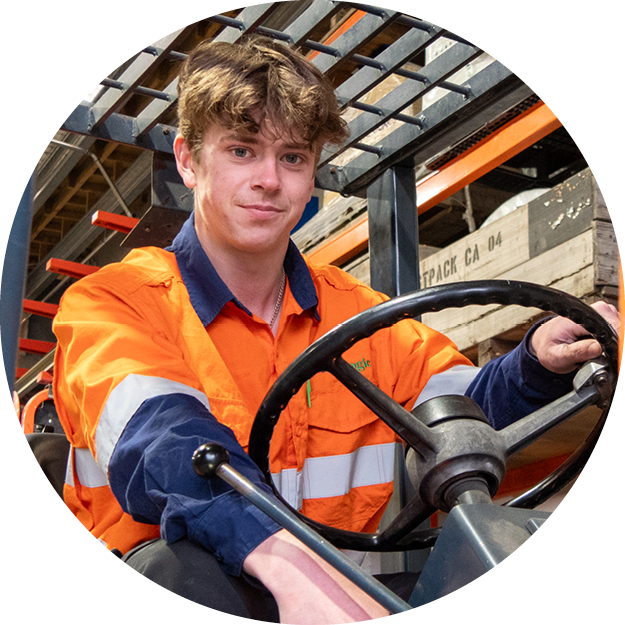
Chat with us about engineering apprenticeships, industry training programmes and specialised short courses: Whether you’re looking to start your journey to becoming a qualified mechanical engineer, host an ATNZ apprentice, or train your team through our top-tier engineering programmes, our team is here to guide you every step of the way.
Mechanical engineers and trades professionals work together to enhance and optimise mechanical systems for society’s evolving needs. Below are the key responsibilities that define a typical mechanical engineering setting:

Mechanical engineers create concepts and 3D models for products and systems. They develop detailed plans for parts and assemblies. Trades specialists, such as fitters and machinists, then use these plans to build prototypes, test components and prepare final products.
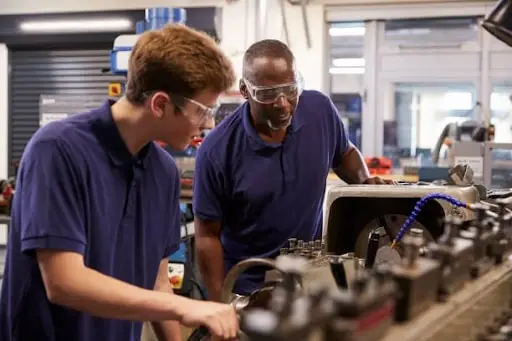
Engineers perform analytical and computational tests to confirm safety, performance and regulatory compliance. This may include producing prototypes and running physical experiments. Trades personnel often conduct the hands-on testing, record real-world data and fine-tune components based on results.
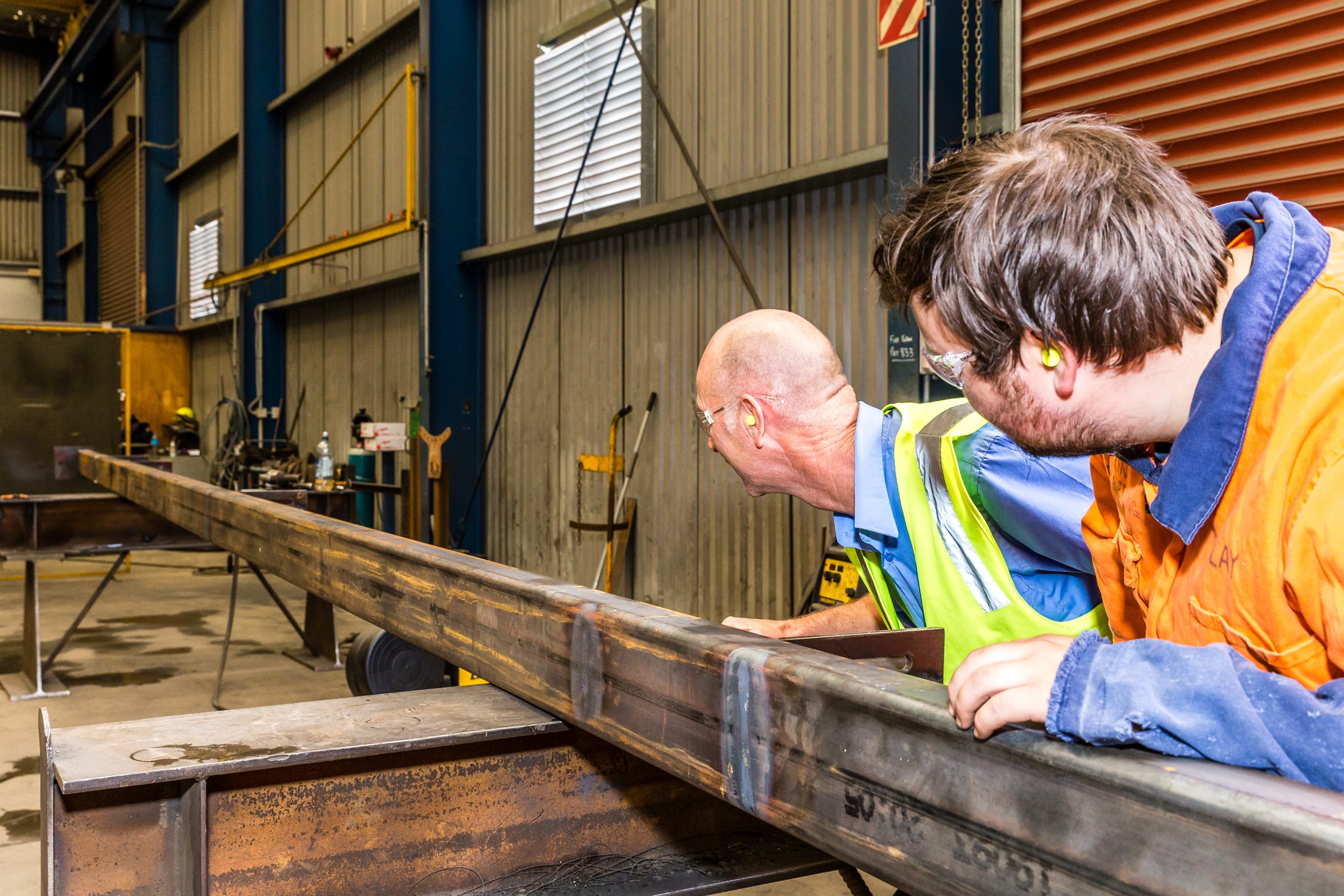
Mechanical engineers typically oversee projects from planning and scheduling to budgeting and team coordination. Trades professionals carry out day-to-day tasks, including assembly, fabrication and quality checks, to meet project milestones on time and within budget.

Engineers evaluate factors such as strength, durability and cost when choosing materials for a project. Trades teams then handle the materials and apply proper techniques to ensure products are built to the required standards and are safe for users.
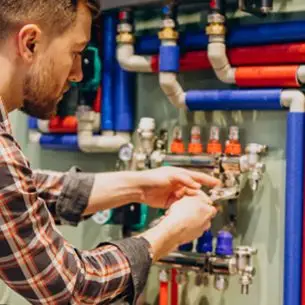
Mechanical engineers design and optimise thermal and fluid systems for HVAC, automotive and other applications. Trades professionals install, service and maintain these systems, ensuring they operate correctly and remain efficient over time.
Engineers rely on computer-aided design (CAD) software to produce 3D models, mechanical layouts and assembly drawings. Skilled tradespeople sometimes use these CAD drawings to guide manufacturing tasks and ensure final products match design specifications.
Engineers work closely with manufacturing teams to plan production processes, choose tooling and maintain quality. Trades personnel handle the hands-on fabrication, assembly and troubleshooting on the shop floor, ensuring products are manufactured efficiently.
Quality control is a shared responsibility. Engineers develop quality procedures and conduct inspections, while trades professionals check for defects or errors during production. Both groups collaborate to keep products safe, reliable and compliant with standards.
Mechanical engineers often explore new materials, techniques and technologies to improve designs. Trades experts provide practical input during prototyping and testing, which can streamline innovation in an ever-changing industry.

MECHANICAL
ENGINEERING

ENGINEERING
FABRICATION

REFRIGERATION AND
AIR CONDITIONING

MECHANICAL BUILDING
SERVICES
Mechanical engineering offers many specialisations, each providing different opportunities and challenges. Trades roles exist in nearly every sector, offering a practical route to support these specialisations:
Automotive engineers design and refine vehicles, focusing on engines, transmissions and safety features. Trades professionals assemble, maintain and repair vehicle components on production lines or in workshops.
Aerospace engineers handle the design and testing of aircraft and spacecraft. Trades teams manufacture and repair aviation parts, ensuring compliance with strict safety and performance standards.
Biomechanical engineers develop medical devices, prosthetics and implants. Trades roles in this field involve precision fabrication and assembly of healthcare-related components.
Control engineers create automation and mechatronic systems. Trades professionals install sensors, wiring and mechanical parts that bring these automated systems to life.
Energy systems engineers focus on power generation and energy storage. Trades teams install and service equipment such as turbines, solar arrays or battery systems.
These engineers study fluid flow in pumps, pipelines and hydraulic equipment. Tradespeople build and maintain these systems, ensuring efficient operation and minimal downtime.
HVAC engineers design heating, ventilation and air conditioning solutions for buildings. Trades professionals install ductwork, perform regular maintenance and troubleshoot issues to keep systems functioning effectively.
Manufacturing engineers improve processes to achieve efficiency and cost savings. Trades roles involve operating machinery, inspecting parts, and ensuring products match technical drawings.
Materials engineers select and develop materials for specific applications. Trades teams test and handle these materials on production floors or in specialised facilities.
Mechanical design engineers use CAD software to create mechanical components. Trades personnel interpret these designs for fabrication, ensuring final products meet performance requirements.
Mechatronics engineers blend mechanical and electronic systems to develop robotics and automated machinery. Tradespeople build and maintain these machines, including electrical wiring and mechanical assembly.
Robotics engineers specialise in designing and maintaining robots used in industrial automation and autonomous vehicles. Trades teams construct and service these robots to ensure smooth operation.
Mechanical engineers and trades professionals drive progress in modern technology by designing, manufacturing and maintaining a wide range of systems. Their responsibilities span design, testing, project coordination and continuous innovation across industries like automotive, aerospace and energy. Through collaboration, they create reliable and efficient solutions that meet growing demands for performance, safety and sustainability.
Chat to us about doing an engineering apprenticeship – Our team is here to help you understand the process and get started on your path to becoming a qualified engineer.
Chat to us about hosting an ATNZ apprentice – If you’re an employer interested in hosting an apprentice, we can guide you through the process and match you with the right candidate.
Chat to us about ATNZ training your apprentice – Enhance your current workforce by providing your team members with top-tier training through our apprenticeship programmes.
Ready to advance your engineering career? Join ATNZ and benefit from our extensive experience, industry connections, and dedicated support. Our apprenticeship programmes are designed to provide you with the skills and knowledge needed to thrive in the mechanical engineering field.
